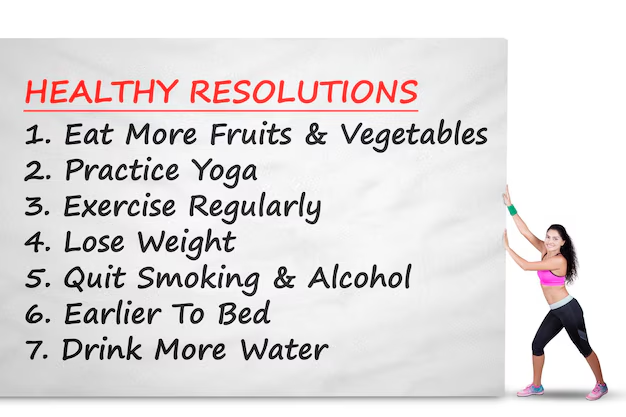
In today’s fast-paced world, maintaining a healthy lifestyle can often feel like a challenge. With busy schedules and endless demands, it can be tough to prioritize fitness and nutrition. However, taking care of your body through regular exercise and proper nutrition is essential not only for your physical well-being but for your mental clarity and emotional resilience as well. Whether you’re aiming to lose weight, build muscle, improve energy levels, or simply feel better day-to-day, adopting a balanced approach to fitness and nutrition is the key.
Here’s expert advice on how to optimize your health and get the best results from both fitness and nutrition:
1. Create a Balanced Fitness Routine
A well-rounded fitness routine is essential for long-term health. Aim for a mix of cardiovascular exercise, strength training, and flexibility work to ensure overall fitness.
- Cardio: Aerobic exercises like running, cycling, or swimming improve heart health, burn fat, and increase stamina. Aim for at least 150 minutes of moderate-intensity cardio each week.
- Strength Training: Building muscle not only increases strength but also boosts metabolism and supports joint health. Include resistance training exercises 2-3 times per week, targeting different muscle groups. This can include weightlifting, bodyweight exercises, or using resistance bands.
- Flexibility and Mobility: Incorporating stretching or yoga into your routine improves flexibility, reduces injury risk, and enhances overall movement quality. Consider including at least 10-15 minutes of stretching post-workout or practicing yoga on rest days.
2. Focus on Whole, Nutrient-Dense Foods
What you eat directly impacts your fitness performance and overall health. A diet rich in whole foods—rather than processed options—ensures that your body receives the nutrients it needs to perform optimally and recover efficiently.
- Lean Proteins: Include protein sources such as chicken, fish, beans, and plant-based proteins. Protein is crucial for muscle repair and growth, especially after strength training.
- Healthy Fats: Don’t shy away from healthy fats, which play a key role in hormone production and brain health. Sources like avocado, olive oil, nuts, and fatty fish like salmon are excellent choices.
- Complex Carbohydrates: Carbs are the body’s main energy source, so focus on consuming complex carbohydrates like whole grains, vegetables, and fruits. These provide sustained energy and fiber for digestive health.
- Micronutrients: Ensure you’re getting a variety of vitamins and minerals by eating a colorful variety of fruits and vegetables. Dark leafy greens, berries, and cruciferous vegetables (like broccoli and cauliflower) are all nutrient-rich options.
3. Hydrate for Optimal Performance
Water is essential for all bodily functions, including those that regulate metabolism and promote efficient muscle function. Dehydration can lead to fatigue, poor performance, and decreased mental clarity.
- Aim to drink at least 8 cups of water a day, or more depending on your activity level. If you’re engaging in strenuous exercise, you may need additional hydration to replenish fluids lost through sweat.
- Herbal teas or infused water can provide variety, while also keeping you hydrated and supporting digestion and metabolism.
4. Prioritize Recovery and Rest
While exercise is important for improving fitness, it’s during recovery that the body heals, grows, and adapts. Rest days are just as important as training days, as they allow muscles to rebuild and repair.
- Sleep: Aim for 7-9 hours of quality sleep each night. Sleep is when your body performs critical functions such as muscle repair and the regulation of hormones responsible for hunger and stress management.
- Rest Days: Incorporate at least one or two rest days per week. During rest, your muscles and joints recover from the strain of exercise, reducing the risk of overuse injuries.
- Active Recovery: If you feel like being active on rest days, consider low-intensity activities like walking, light cycling, or yoga. These can promote blood circulation without overtaxing the body.
5. Mindful Eating and Portion Control
How you eat is just as important as what you eat. Practicing mindful eating can help you tune into your body’s hunger and fullness signals, promoting better digestion and healthier food choices.
- Eat Slowly: Take time to savor your meals, as eating too quickly can lead to overeating. Your body needs time to signal to your brain that it’s full, so slowing down can help you avoid unnecessary calorie intake.
- Portion Sizes: Control portion sizes to avoid overeating. Use smaller plates and be mindful of serving sizes, especially when eating out or consuming packaged foods. Balance your meals with appropriate amounts of protein, carbs, and healthy fats to keep your energy steady throughout the day.
- Avoid Emotional Eating: Many people eat based on emotions rather than physical hunger. Practice recognizing emotional hunger cues versus physical ones and find other ways to cope with stress or emotions, like taking a walk or practicing deep breathing exercises.
6. Set Realistic Fitness and Nutrition Goals
It’s easy to become discouraged if you set unrealistic expectations for your fitness and nutrition journey. Start with small, attainable goals and gradually build on them.
- Track Progress: Keep track of your fitness progress and nutrition habits. Whether through a journal or an app, recording your workouts, meals, and energy levels can help you stay motivated and make adjustments when necessary.
- Celebrate Small Wins: Acknowledge and celebrate your achievements, whether it’s completing a workout, making a healthier food choice, or improving your strength. Small victories help to maintain momentum and keep you focused on long-term health.
7. Seek Professional Guidance
If you’re new to fitness or have specific health concerns, consider working with a professional such as a personal trainer or nutritionist. They can provide expert advice tailored to your specific needs, ensuring you follow a safe and effective plan.
- A personal trainer can guide you through exercises, ensuring you use proper form and avoid injury.
- A nutritionist can help you develop a meal plan that aligns with your health goals, taking into account any dietary restrictions or preferences.
Conclusion
Boosting your health is an ongoing journey that requires consistent effort and a holistic approach to fitness and nutrition. By creating a balanced workout routine, focusing on whole, nutrient-dense foods, staying hydrated, and prioritizing rest, you can achieve long-term wellness. Set achievable goals, practice mindful eating, and seek professional advice when needed to optimize your results. With commitment and the right strategies, you can improve both your physical fitness and overall health, paving the way for a stronger, more vibrant future.












